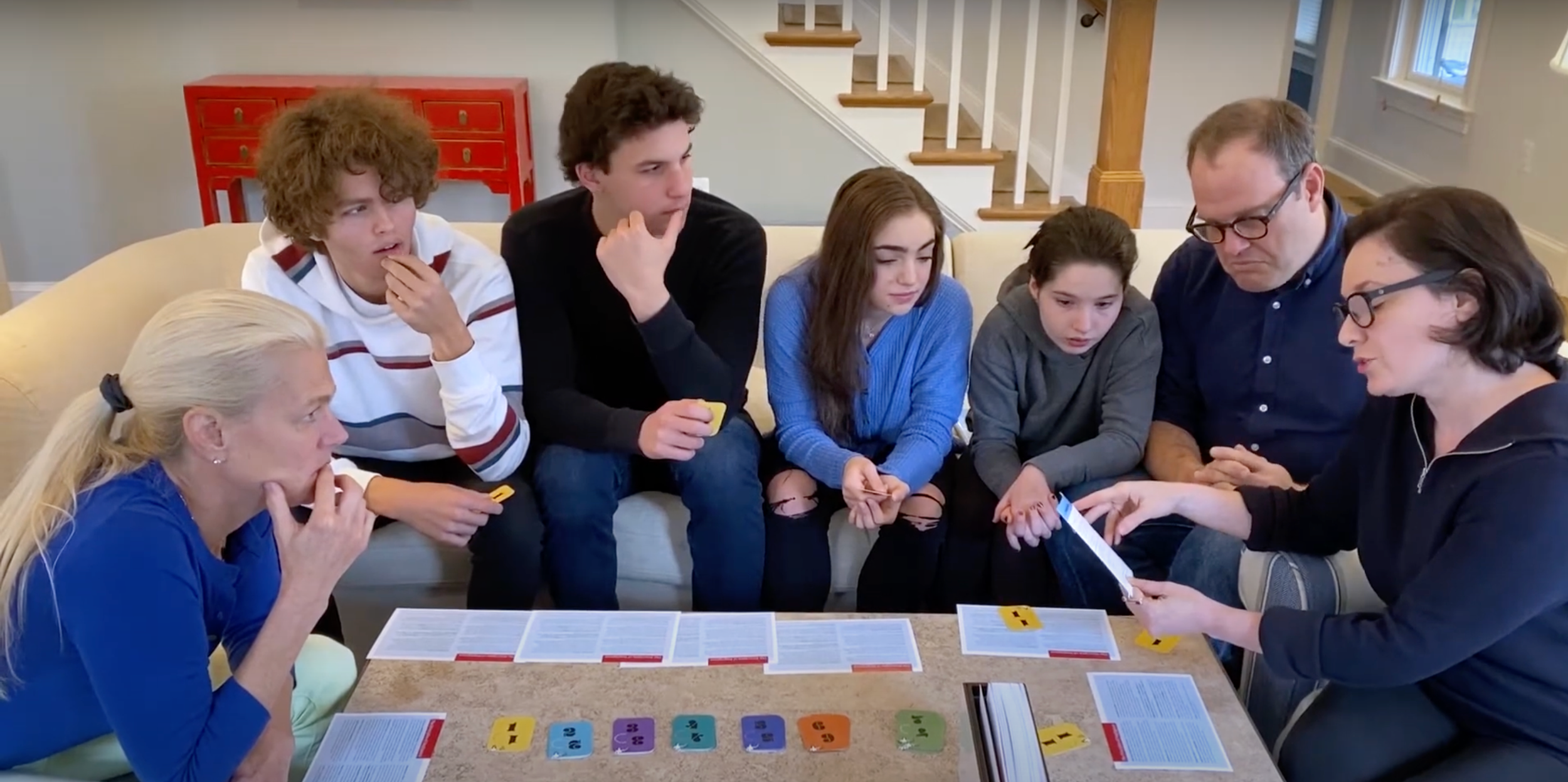That’s Just Wrong: 2025 Analog Game Winner
Some parts of our world are patterned like games, if only one looks at them in the right way. When a designer comes along who sees the latent game within that system it can make for an experience that feels natural and compelling. That’s part of what Speke Wilson has down in That’s Just Wrong by transforming the rules, contestation, and puzzlement of the civil legal system into a party game. Players prepare for the game by learning some of the basic guiding principles that judges apply to judge responsibility and culpability, and then pick out a short description of a historical case to study and debate together. That’s Just Wrong is a great example of what David Shaffer has called an “epistemic game,” which gives the players a role that approximates a real professional practice and asks them to develop the associated perspective and skills. The role is that of a judge; which is an inspired choice because it goes beyond the ordinary framework of professionalization to empower players to discuss the basic foundations of civil society. Rather than a legal system that depends on distant and inscrutable decisions, everyone is invited to discuss how the law should work and wrestle with its implications. There is a real democratic ethos at the heart of the game.
So, deliberation is at the core of That’s Just Wrong, just as it’s at the core of judicial rulings. But what makes the simple party game mechanic of discussion work so well is the clarity, precision, and whimsy of the writing. It is no easy feat to condense a complicated court case down to a handful of sentences that preserve both the difficulty of rendering a judgment and enough evidence to make the discussion rich in its ethical and technical consequences. It seems like each case has been left to simmer until all the excess liquid has boiled away—leaving something potent and chewy. Equally important, Wilson has chosen cases that bring dusty principles to life.
The game is pitched as a tool for dinner table conversation with teenagers, but it also has some major strengths for a civics or social studies classroom. First, the cases seem well scaffolded to introduce core legal concepts in distinct and isolated ways before asking the players to deal with subtler arguments in later cases. Second, the game has a wealth of content. Discussing a case might take between ten minutes and a half-hour, and every case is unique enough to keep the table talking. Replaying old cases with new groups also seems like a potentially rewarding experience for getting at new perspectives. While the teacher’s guide was not available for judging, it is easy to imagine how any one of the cases could be extended by asking students to do deeper research on its principles, to look more closely at the historical context, or to follow its consequences in future case law citations. Last but not least, the game is incredibly easy to setup. New players can be introduced in minutes to the basic ideas, and there is very little that can go wrong in the execution. That’s Just Wrong would be a really useful thing for many teachers to have in their back pocket.
Thanks to the category lead, Peter McDonald (UW-Madison), and judges: Nathan Batty (UW-Madison), Gyeongri Kim (UW-Madison), Jenn Scianna (UW-Madison), and Max Shafer-Landau (UW-Madison).

